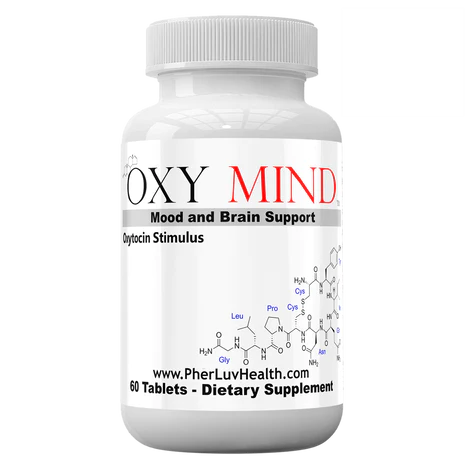

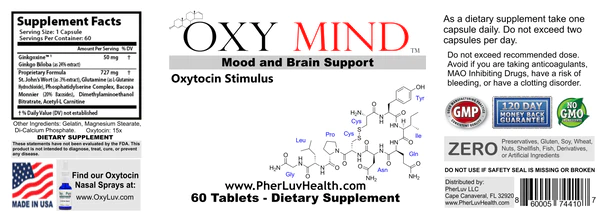
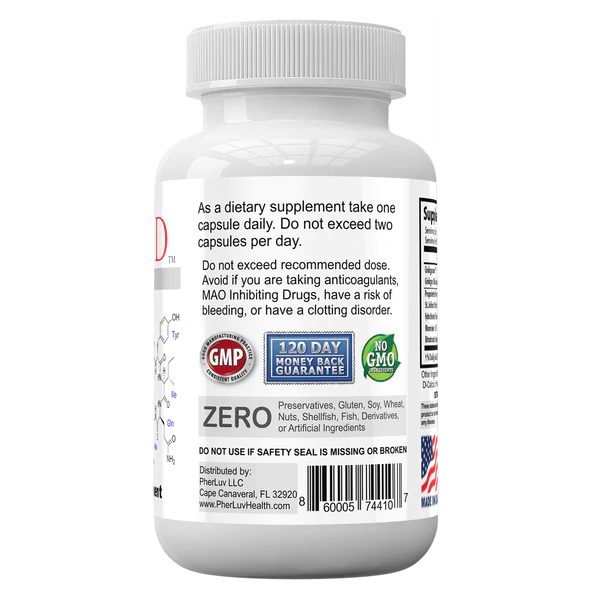
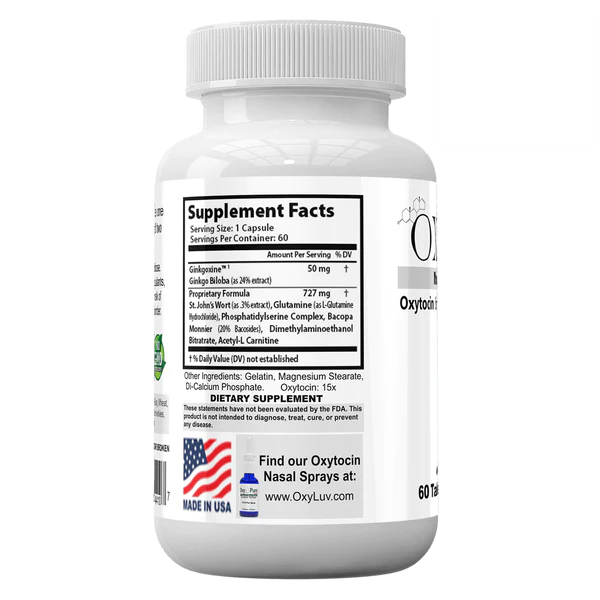
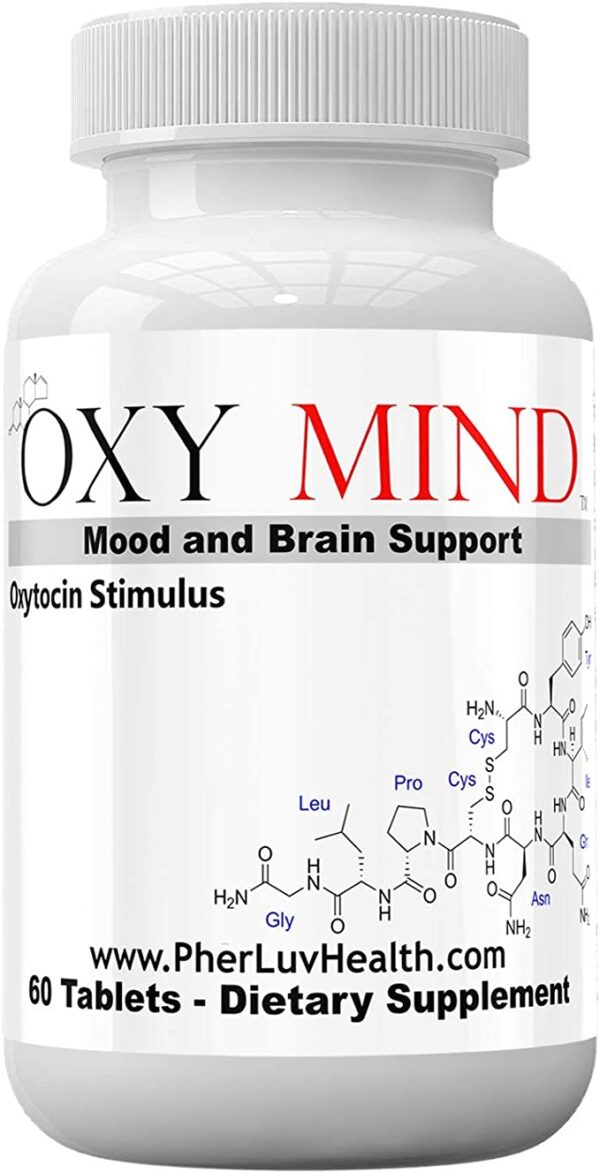





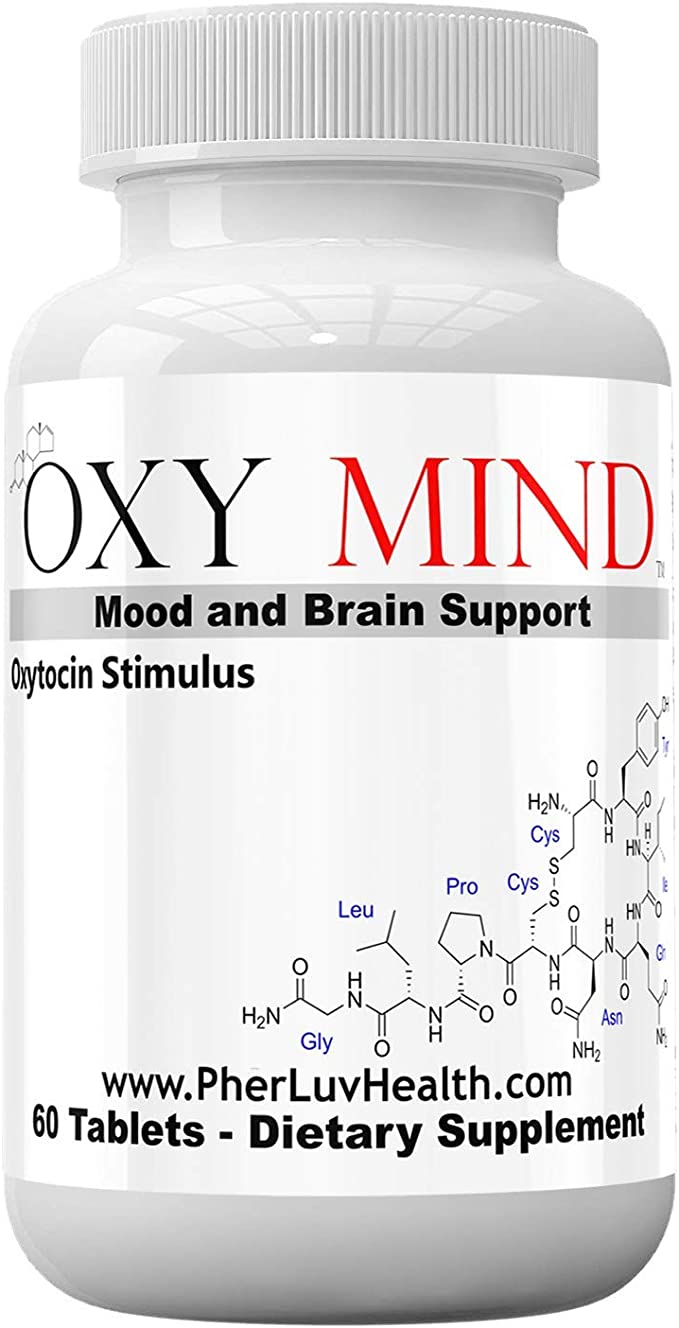
Oxytocin Supplement
$40.00 Original price was: $40.00.$30.00Current price is: $30.00.
- Package Dimensions : 4.45 x 2.48 x 2.32 inches; 2.75 Ounces
- Date First Available : February 2, 2023
- Note: Products with electrical plugs are designed for use in the US. Outlets and voltage differ internationally and this product may require an adapter or converter for use in your destination. Please check compatibility before purchasing.
- Description
- Reviews (0)
- More Products
Description
Oxytocin acts directly on the uterus to induce rhythmic contractions. It can be used to induce labor, to speed up parturition, and for postpartum evacuation of uterine debris.
Proudly sourced directly from the manufacturer or their approved distributor. Guaranteed genuine and backed by the manufacturer.
Specifications
| Item Number | 174432 |
|---|---|
| Generic Name | Oxytocin |
| For Use With | Horses, Sows, Ewes, & Cows |
| Common Brand Name(s) | Pitocin |
| Administration Form | Orals |
| Product Form | Orals |
| Health Condition | Labor Induction |
| Drug Type | Hormone |
Uses
Because of the specific action of oxytocin upon the uterine musculature, it is recommended as an aid in the management of the following conditions: To precipitate labor, to accelerate normal parturition, postpartum evacuation of uterine debris, postoperative contraction of the uterus following a cesarean section and control of uterine hemorrhage.
Oxytocin, commonly referred to as the “love hormone” or “bonding hormone,” is a peptide hormone and neuropeptide produced in the hypothalamus and released by the posterior pituitary gland. It plays a vital role in various physiological and behavioral functions, including childbirth, lactation, bonding, sexual reproduction, and emotional responses. Often associated with feelings of love, trust, and empathy, oxytocin has become a subject of significant interest both in medical science and popular culture. It is used therapeutically in clinical settings for its profound physiological effects, but like any medication or hormone, oxytocin can also produce side effects when administered externally.
This article will explore the primary uses, benefits, and side effects of oxytocin, with an emphasis on its medical, psychological, and behavioral impacts.
Uses of Oxytocin
- Inducing Labor
One of the most common medical uses of oxytocin is to induce labor in pregnant women. Administered intravenously in synthetic form (Pitocin), oxytocin stimulates uterine contractions and helps initiate the process of childbirth. This use is typically recommended when labor has not started naturally or when there are concerns about the health of the mother or baby. It can also be used to strengthen weak contractions or assist labor in cases where it has stalled. - Postpartum Hemorrhage Control
After childbirth, oxytocin plays a crucial role in reducing postpartum hemorrhage (excessive bleeding after delivery). By causing the uterus to contract and clamp down on the blood vessels where the placenta was attached, oxytocin helps prevent life-threatening blood loss. It is frequently used in hospital settings as a preventive measure immediately after delivery. - Milk Ejection During Breastfeeding
Oxytocin is essential for lactation, as it stimulates the “let-down” reflex, enabling milk ejection from the mammary glands. When a baby suckles, oxytocin is released, triggering the smooth muscle cells around the milk ducts to contract and push the milk toward the nipple. In some cases, synthetic oxytocin may be administered to women who have difficulty breastfeeding due to a lack of natural milk ejection. - Treating Autism Spectrum Disorder and Social Anxiety
Research has shown that oxytocin may have potential benefits in treating individuals with autism spectrum disorder (ASD) and social anxiety. In some studies, oxytocin has been shown to improve social interactions, increase eye contact, and reduce repetitive behaviors in individuals with ASD. It is believed that oxytocin enhances feelings of empathy, trust, and social bonding, which can be beneficial for those struggling with social anxiety and related conditions. - Adjunctive Treatment in Psychiatry
it is being explored as an adjunctive treatment in psychiatric disorders such as depression, borderline personality disorder, and post-traumatic stress disorder (PTSD). Its role in promoting trust, bonding, and emotional regulation makes it a potential candidate for therapies aimed at enhancing interpersonal relationships and reducing symptoms of emotional dysregulation. - Sexual Function and Relationship Bonding
it is released during physical intimacy, particularly during orgasm, and contributes to feelings of bonding and closeness between partners. In therapeutic settings, it may be used to address issues related to sexual dysfunction, low libido, or relationship difficulties. It fosters trust and attachment, which are critical components of emotional and sexual well-being.
Benefits of Oxytocin
- Facilitating Childbirth and Reducing Complications
it is indispensable for a smooth labor process. By inducing labor or strengthening weak contractions, it helps avoid prolonged labor that could lead to complications such as fetal distress, uterine exhaustion, or the need for cesarean delivery. Additionally, its use in managing postpartum hemorrhage significantly reduces the risk of severe blood loss, which can be fatal if not promptly addressed. - Enhancing Mother-Infant Bonding
The release of oxytocin during childbirth and breastfeeding promotes bonding between mother and infant. it fosters emotional attachment and care, which can enhance a mother’s emotional connection with her baby. This hormone-driven bonding is critical for infant development, as it encourages nurturing behaviors and helps ensure the baby’s survival. - Improving Social Interactions
it’s influence on social behavior extends beyond mother-infant bonding. In both men and women, oxytocin has been shown to improve social cognition, emotional recognition, and empathy. Individuals with social anxiety, ASD, or PTSD may benefit from increased oxytocin levels, which help reduce feelings of fear, distrust, and social withdrawal. - Enhancing Emotional Resilience and Stress Reduction
Oxytocin helps reduce cortisol levels, the hormone responsible for stress, thereby improving emotional resilience. During stressful situations, oxytocin can act as a buffer, helping individuals remain calm and better manage anxiety. This calming effect can make it easier to navigate emotionally challenging experiences, promoting overall mental well-being. - Positive Impact on Relationships
In romantic and interpersonal relationships, oxytocin fosters trust, empathy, and attachment. This hormone’s role in strengthening social bonds makes it critical for emotional intimacy and connection. By promoting feelings of security and trustworthiness, oxytocin helps partners build stronger, healthier relationships, reducing the likelihood of conflict and promoting emotional stability.
Side Effects of Oxytocin
- Hyperstimulation of the Uterus
One of the most significant risks associated with it, particularly when used to induce labor, is hyperstimulation of the uterus. If contractions become too strong or frequent, they can lead to reduced oxygen supply to the fetus, increasing the risk of fetal distress or injury. In some cases, excessive uterine contractions may require emergency interventions such as a cesarean section. - Water Intoxication (Hyponatremia)
it can have an antidiuretic effect, meaning it may cause the body to retain water. When administered in high doses over an extended period, this can lead to water intoxication, or hyponatremia, where the body’s sodium levels become dangerously diluted. Symptoms of hyponatremia include headache, nausea, vomiting, confusion, and in severe cases, seizures or coma. - Low Blood Pressure (Hypotension)
Oxytocin can cause a sudden drop in blood pressure, especially when administered intravenously in high doses. This can result in dizziness, fainting, or more serious complications like cardiac arrhythmias. For this reason, blood pressure monitoring is essential during oxytocin administration in a medical setting. - Nausea and Vomiting
Some individuals experience mild to moderate nausea or vomiting after its administration. This side effect is typically short-lived and resolves on its own. However, in cases where vomiting is severe or persistent, medical intervention may be required. - Allergic Reactions
Although rare, allergic reactions to it can occur. Symptoms may include rash, difficulty breathing, chest tightness, and swelling of the face, lips, or throat. Any signs of an allergic reaction should be treated as a medical emergency. - Cardiovascular Issues
In rare cases, it can lead to more serious cardiovascular complications, including arrhythmias, tachycardia (rapid heartbeat), or even myocardial infarction (heart attack). Patients with pre-existing heart conditions should use oxytocin under careful medical supervision.
cin Supplement
Drug & Food Interactions
Talk to your veterinarian about any other drugs your pet is taking before starting this medication. Oxytocin Supplement
Precautions
it is a potent preparation, accordingly, it should be administered with due caution. For prepartum usage full dilation of the cervix should be accomplished either naturally or through the administration of estrogen prior to oxytocin therapy.
- it is scientifically proven by the medical field to reduce social fears, anxiety, stress, and create feelings of trust between others.
- OxyMind helps to increase your bodies natural Oxytocin levels.
- Better Sex Life – Reduced Stress – More Energy and Focus
- Decreased Anxiety – Increased Orgasm – Improved Sleep
Related
Be the first to review “Oxytocin Supplement” Cancel reply
- Injectables
hcg injections near me
0 out of 5$75.00Original price was: $75.00.$60.00Current price is: $60.00.

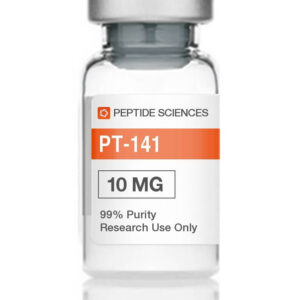
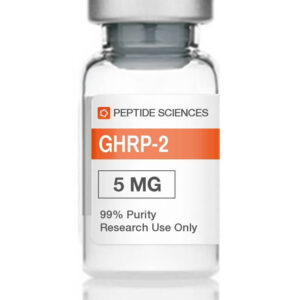
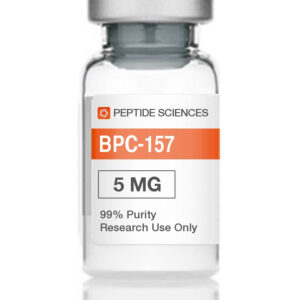

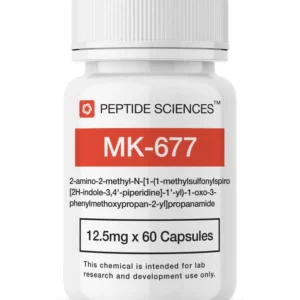

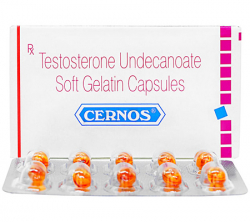
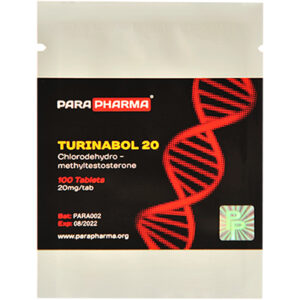

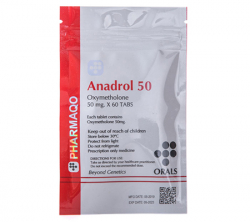
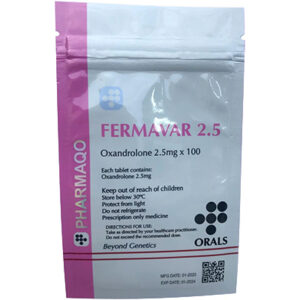
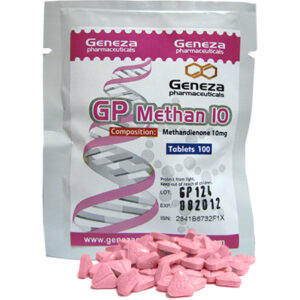

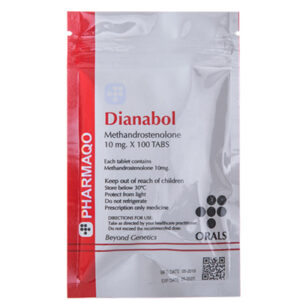



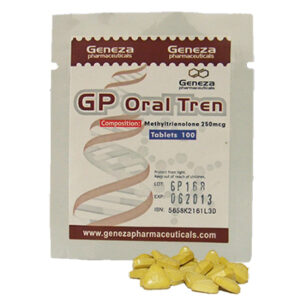
Reviews
There are no reviews yet.